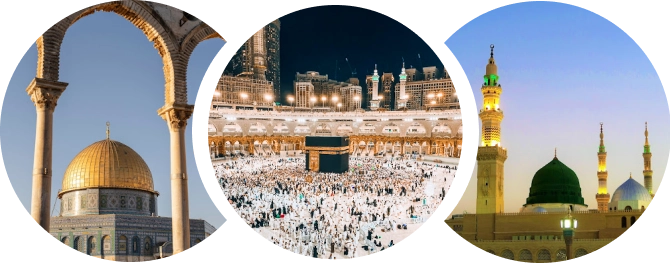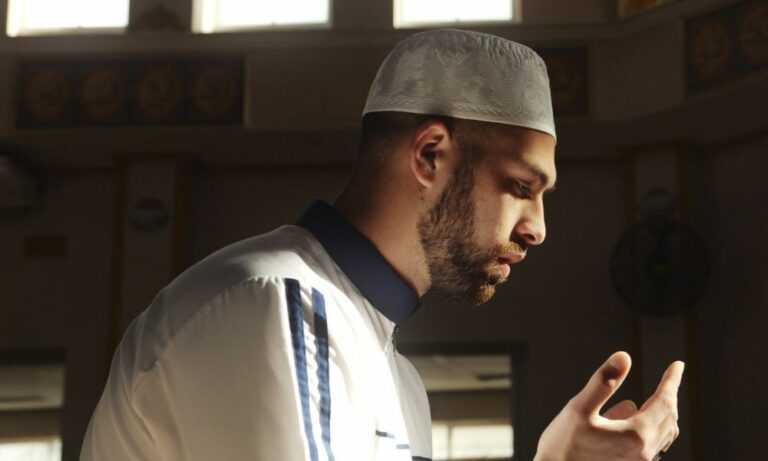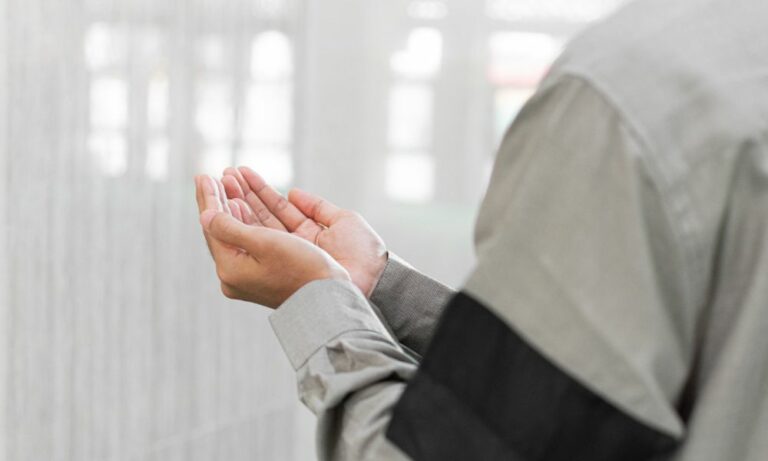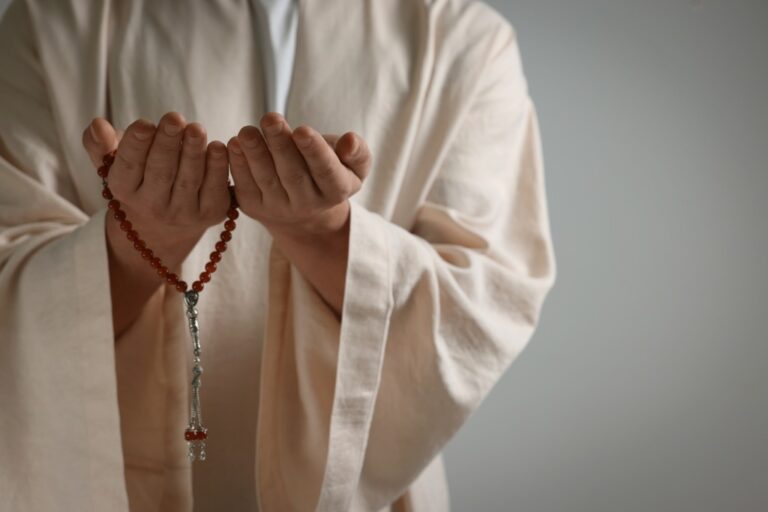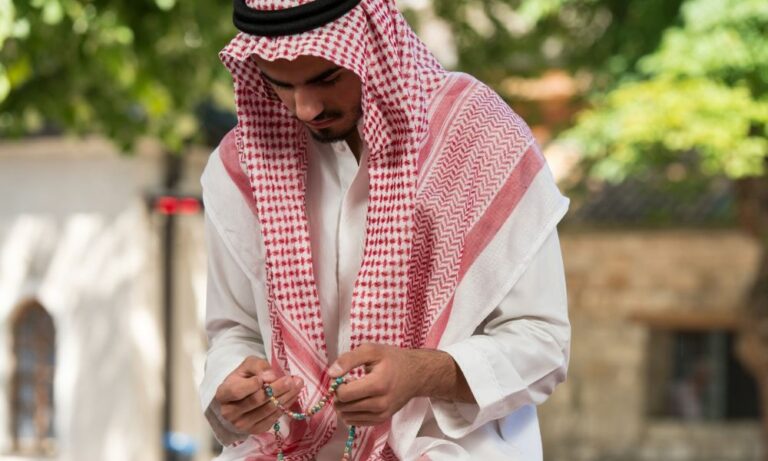Tahajjud Prayer: Importance, Benefits, How To Perform
If you want to strengthen your spiritual relationship with Allah SWT, embracing the act of Tahajjud Prayer might be the ideal way for you. This voluntary prayer, performed in the last part of the night, is crucial in building your faith.
This post will explore the significance, benefits, and correct procedures for performing Tahajjud prayer. So, keep scrolling slowly, and stay with us for a while!
This prayer offers a unique opportunity to draw closer to Allah (SWT) and experience a profound sense of connection and peace in your heart.
Understanding Tahajjud Prayer


Tahajjud prayer is a voluntary prayer performed after Isha and before Fajr, holding great significance in Islam.
Meaning and Significance
Tahajjud, also known as Qiyam-ul-lail, holds a special place as an essential voluntary night prayer. By performing this prayer, you demonstrate deep spiritual devotion and follow Prophet Muhammad’s (PBUH) example.
During the quiet night hours, Tahajjud allows you to stand before Allah SWT in complete surrender and supplication. This prayer can bring you closer to the Divine Presence, distancing you from worldly distractions.
Prophet Muhammad PBUH declared it as the most beloved Salah to Allah SWT after the Fard Prayers:
“ أَفْضَلُ الصِّيَامِ بَعْدَ رَمَضَانَ شَهْرُ اللَّهِ الْمُحَرَّمُ وَأَفْضَلُ الصَّلاَةِ بَعْدَ الْفَرِيضَةِ صَلاَةُ اللَّيْلِ .”
The most excellent fast after Ramadan is God’s month. Al-Muharram and the most excellent prayer after what is prescribed is prayer during the night.
Tahajjud is performed for its ability to bring peace and brightness into one’s life by aligning believers on a path guided by faithfulness, dedication, repentance, and divine mercy.
References in the Quran
The Quran holds a significant place in Islam, and it provides explicit references to Tahajjud prayer. In Surah Al-Isra (17:79), Allah SWT advises Prophet Muhammad (PBUH) to perform the Tahajjud prayer to gain spiritual strength and closeness to Him.
وَمِنَ ٱلَّيْلِ فَتَهَجَّدْ بِهِۦ نَافِلَةًۭ لَّكَ عَسَىٰٓ أَن يَبْعَثَكَ رَبُّكَ مَقَامًۭا مَّحْمُودًۭا ٧٩
And rise at ˹the last˺ part of the night, offering additional prayers, so your Lord may raise you to a station of praise.
Furthermore, Surah As-Sajdah (32:16) portrays those who abandon their beds at night for prayers as seeking forgiveness from their Lord. Due to its immense spiritual benefits, the directives offer insights into how Muslims should prioritize the Tahajjud Prayer.
تَتَجَافَىٰ جُنُوبُهُمْ عَنِ ٱلْمَضَاجِعِ يَدْعُونَ رَبَّهُمْ خَوْفًۭا وَطَمَعًۭا وَمِمَّا رَزَقْنَـٰهُمْ يُنفِقُونَ ١٦
They abandon their beds, invoking their Lord with hope and fear, and donate from what We have provided for them.
This is also a way to show sincere faith, devotion to Allah SWT, and an awareness of His divine presence by reciting Quran verses during a special nightly prayer ritual that makes a Muslim more spiritual.
The Importance of Tahajjud Prayer
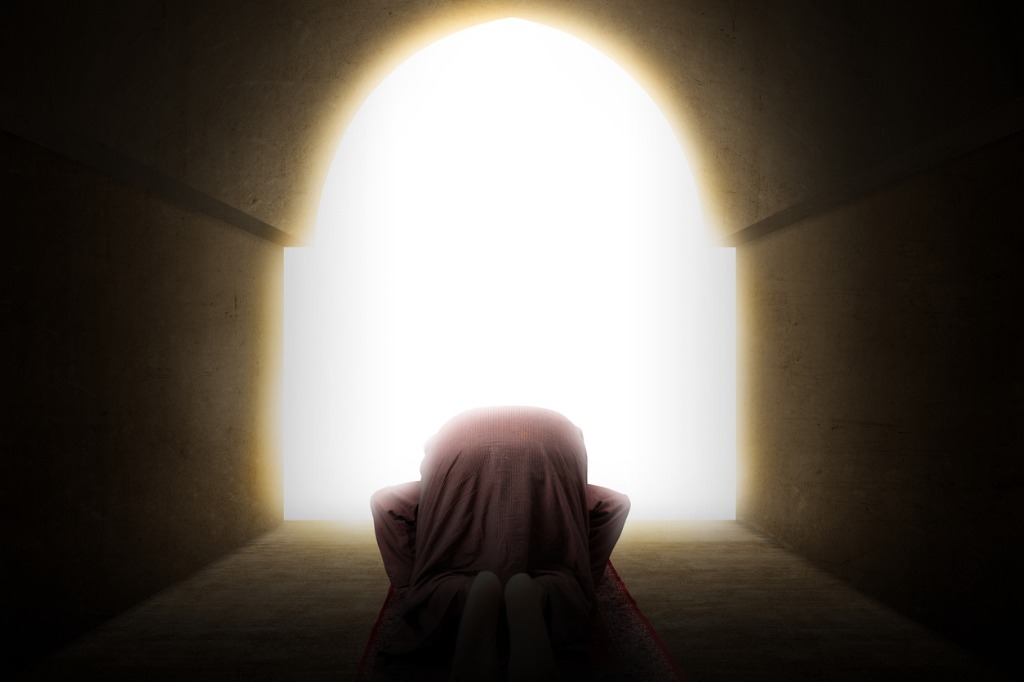

The Tahajjud prayer is significant in Islamic practices and is frequently emphasized in Quranic verses and Hadiths. This nightly devotional is not obligatory but is highly recommended by Prophet Muhammad (PBUH), who regularly performed up to 13 rakats as part of his practice.
قَالَ كَانَ صَلاَةُ النَّبِيِّ صلى الله عليه وسلم ثَلاَثَ عَشْرَةَ رَكْعَةً. يَعْنِي بِاللَّيْلِ
The prayer of the Prophet (ﷺ) used to be of thirteen rak’at, i.e. of the night prayer. (narrated by Ibn Abbas)
The Tahajjud ritual gives you a unique chance to talk to Allah SWT on a personal level in the early morning, which deepens your spiritual devotion and commitment.
Its importance includes its role as a way to make up for wrongs. Each sincere prostration makes up for past mistakes and makes the person more aware, keeping them from repeating the same mistakes.
The Ahadith of Prophet Muhammad (PBUH) says that people who follow this routine may get closer to Allah SWT’s divine mercy and forgiveness. This gives people hope for higher ranks in Paradise, which is the ultimate goal of all faithful believers.
يَا أَيُّهَا النَّاسُ، أَفْشُوا السَّلَامَ وَصِلُوا الْأَرْحَامَ، وَأَطْعِمُوا الطَّعَامَ، وَصَلُّوا بِاللَّيْلِ وَالنَّاسُ نِيَامٌ، تَدْخُلُوا الْجَنَّةَ بِسَلَامٍ
“O people, spread the greeting of peace profusely, maintain kinship ties, feed others, and pray at night when people are asleep; you will enter Paradise in peace.” Sahih/Authentic. – [Ibn Maajah]
Furthermore, a consistent commitment to Tahajjud can improve prayer discipline and heart purification, cementing it as an essential aspect of Muslim practices.
How to Perform Tahajjud Prayer


To perform the Tahajjud prayer, one should start by waking up during the last third of the night and preparing for the blessing, such as performing Wudu (ablution) and finding a peaceful place to pray.
Ideal Time for Tahajjud
The ideal time for Tahajjud prayer is during the last third of the night. This is because it is believed that during this time, Allah SWT descends to the lowest Heaven in search of those making supplications and prayers. Sahih al-Bukhari 1145
By praying Tahajjud during this special time, you can experience a unique and intimate connection with Allah SWT.
Seeking His mercy, guidance, and blessings is a precious opportunity. Engaging in Tahajjud prayer strengthens your spiritual bond with the Divine, knowing that Allah SWT is attentive to your sincere prayers and supplications during these blessed hours.
Preparation for the Prayer
Before you go to bed, you must set your intention to wake up in the last third of the night for Tahajjud prayer. Make sure to plan and prepare for this spiritual practice.
To make it easier to wake up, try to go to bed early and get enough rest. Being well-rested will help you wake up without feeling overly tired, allowing you to approach Tahajjud prayer attentively.
By physically and mentally preparing for Tahajjud prayer, you can enter this particular worship act with focus and dedication. Setting the right intentions and making the necessary preparations will enhance your experience during this blessed time of connecting with Allah SWT.
The good news is that you will still receive the benefits if you intend to pray Tahajjud but fail to do so.
“ مَنْ أَتَى فِرَاشَهُ وَهُوَ يَنْوِي أَنْ يَقُومَ فَيُصَلِّيَ مِنَ اللَّيْلِ فَغَلَبَتْهُ عَيْنُهُ حَتَّى يُصْبِحَ – كُتِبَ لَهُ مَا نَوَى وَكَانَ نَوْمُهُ صَدَقَةً عَلَيْهِ مِنْ رَبِّهِ ”
“Whoever goes to bed intending to wake up and pray during the night but is overwhelmed by sleep until the morning comes, what he intended will be recorded for him, and his sleep is a charity given to him by his Lord.
Number of Rakats
The number of rakats required for Tahajjud prayer varies, but two rakats are adequate. Tahajjud prayer does not need a specific number of rakats because it is a voluntary prayer with no set limit.
However, Prophet Muhammad (PBUH) regularly performed nearly 13 rakats of Tahajjud prayer, setting an excellent example for his followers. Your emphasis should be on sincerity and devotion in performing these extra prayers at night, seeking closeness to Allah SWT and forgiveness from Him.
Begin with two and gradually increase the number as you become more comfortable. Keep in mind that the main goal should be to pray with reciting as many verses as possible, because that is what matters according to the hadith:
مَنْ قَامَ بِعَشْرِ آيَاتٍ لَمْ يُكْتَبْ مِنَ الْغَافِلِينَ وَمَنْ قَامَ بِمِائَةِ آيَةٍ كُتِبَ مِنَ الْقَانِتِينَ وَمَنْ قَامَ بِأَلْفِ آيَةٍ كُتِبَ مِنَ الْمُقَنْطَرِينَ ” .
If anyone prays at night regularly reciting ten verses, he will not be recorded among the negligent; if anyone prays at night and recites a hundred verses, he will be recorded among those who are obedient to Allah SWT; and if anyone prays at night reciting one thousand verses, he will be recorded among those who receive huge rewards.
The Method of Prayer
To engage in Tahajjud prayer, you should declare your intention first to participate in this voluntary act of worship. It is advised to awaken in the last third of the night and cleanse oneself through ablution (wudu).
Find a quiet, clean place to concentrate on your relationship with Allah SWT. Begin by offering two rakats (units of prayer), then add more rakats if desired. Recite Quran verses during each rakat, making sure to bow (ruku) and prostrate (sujood) with complete devotion.
The prayer method should be done with sincerity and humility, seeking closeness to Allah SWT and forgiveness for past sins.
Tahajjud Prayer Niyat and Dua


Having a clear intention or niyat is essential when performing the Tahajjud prayer. The niyat should be made in the heart to wake up in the middle of the night and offer this voluntary prayer solely for pleasing Allah SWT and seeking His forgiveness.
There is no need to recite specific words for the niyat because it is an internal commitment between you and Allah SWT.
There is no specific dua that you have to recite during Tahajjud prayer. You can make personal supplications or duas to Allah SWT, asking for guidance, blessings, forgiveness, or any other wishes.
It is also advised to recite Quranic verses during this time. You can select verses that are personally meaningful and impactful to them, or you can seek guidance from Islamic scholars on recommended prayers or duas for various purposes.
Through sincere devotion and heartfelt prayers, Tahajjud prayer allows you to connect with your Creator on a deeper level. This practice strengthens your faith and is a powerful tool for spiritual growth.
The Tahajjud Practice of the Prophet
- Prophet Muhammad (PBUH) used to perform Tahajjud prayer regularly.
- He would wake up in the last third of the night, considered the best time for this prayer.
- The Prophet would take ablution (wudu) before starting his Tahajjud prayer.
- Prophet Muhammad PBUH also used the ToothStick (miswak). Sunan Ibn Majah 286
- Prophet Muhammad PBUH used to pray the witr prayer after performing the tahajjud prayer. Sahih al-Bukhari 996
- He would pray a minimum of 8 rakats and a maximum of 13 rakats during Tahajjud.
- Prophet Muhammad (PBUH) would recite long portions of the Quran during his Tahajjud prayer. His Qiyam (standing) was so long that his feet would become swollen. Sahih al-Bukhari 6471
- His devotion and sincerity in performing Tahajjud were exemplary for all Muslims.
Benefits of Tahajjud Prayer


Tahajjud prayer offers numerous benefits, including spiritual elevation, disease protection, elimination of laziness, prevention of sins, increased faith, and physical well-being.
Read on to discover the transformative power of Tahajjud prayer in your life.
Spiritual Elevation
Tahajjud prayer is essential for spiritual development. You can experience a deep connection with Allah SWT and seek His divine presence by waking up during the last third of the night and dedicating yourself to this voluntary prayer.
This spiritual elevation promotes inner peace, strengthens faith, and provides opportunities for self-reflection and repentance.
Furthermore, Tahajjud prayer allows you to disconnect from worldly distractions and focus solely on seeking Allah SWT’s closeness, resulting in greater devotion and commitment to living a righteous life.
Tahajjud brings you to the pinnacle of spirituality and love for Allah SWT because no one is watching you now. It’s a special meeting between you and Allah SWT, and it’s the perfect time to ask him for anything you want and grow closer to him.
By engaging in this practice, you can embark on a spiritual growth journey and strengthen your bond with your Creator.
Protection against Diseases
If you want to pray Tahajjud, you must wake up in the third part of the night, and you know that to wake up at that time, you must sleep earlier, after Isha. We all know that science shows that sleeping and waking up early in the morning benefits your health and protects you from various diseases.
Furthermore, during this time of devotion, you can seek Allah SWT’s blessings and mercy, including protection from physical ailments. Tahajjud prayer not only provides spiritual benefits but also improves your physical well-being, ensuring that you live a healthy and disease-free life.
Elimination of Laziness
Tahajjud prayer is very effective in removing laziness from your life. You demonstrate commitment and dedication to Allah SWT by waking up during the last third of the night to engage in this voluntary prayer.
Getting out of bed and performing the Tahajjud prayer requires effort and discipline, which helps you develop a sense of responsibility. This early morning devotion energizes the body and strengthens the mind, preparing us for the day ahead with renewed energy and focus.
You gradually develop a mindset of diligence as you consistently make it a habit to wake up for Tahajjud prayer, leaving no room for lethargy or procrastination in your daily activities.
Prevention from Sins
Tahajjud prayer can keep you from committing sins. You can strengthen your faith and build a stronger connection with your Creator by waking up in the last third of the night and dedicating this time to worshipping Allah SWT.
Allah SWT says in the Quran “…for Prayer restrains from shameful and unjust deeds” (69:29). Unlike other prayers, In Tahajjud, no worldly concern distracts you. That’s why you can focus solely on your salah, which takes you to a heightened state of spirituality.
During Tahajjud prayer, seeking forgiveness, reciting Quranic verses, and offering supplications create an atmosphere of mindfulness and self-reflection that protects against sinful thoughts or actions.
Furthermore, the rewards and blessings associated with this voluntary prayer instill gratitude towards Allah SWT, making it easier to refrain from sinful behavior out of fear or love for Him.
Increase in Faith


The Tahajjud prayer has the potential to boost your faith significantly. This extra act of worship at night allows you to show your devotion and commitment to Allah SWT, strengthening your spiritual connection with Him.
You can experience a deep sense of spirituality and intimate conversations with Allah SWT by waking up early and dedicating time solely to prayer.
Your faith grows stronger due to this consistent practice as you feel closer to Allah SWT and find solace in His presence. The Tahajjud prayer serves as a reminder of Allah SWT’s love and mercy, reinforcing your faith in Him and Islam.
Salvation from Hell’s Punishment
Tahajjud prayer has the potential to save people from Hell’s punishment. One seeks forgiveness and redemption for past sins by participating in this voluntary prayer.
It is a powerful act of devotion that enables you to turn to Allah SWT and seek His mercy. The sincerity and commitment demonstrated during Tahajjud prayer can aid salvation by establishing a solid faith and repentance for previous mistakes.
Through this unique form of worship, you can seek Allah SWT’s mercy and, ultimately, a place in Paradise.
Allah SWT Accepts Your Du’a
Abu Huraira narrated that :
“ يَنْزِلُ رَبُّنَا تَبَارَكَ وَتَعَالَى كُلَّ لَيْلَةٍ إِلَى السَّمَاءِ الدُّنْيَا حِينَ يَبْقَى ثُلُثُ اللَّيْلِ الآخِرُ يَقُولُ مَنْ يَدْعُونِي فَأَسْتَجِيبَ لَهُ مَنْ يَسْأَلُنِي فَأُعْطِيَهُ مَنْ يَسْتَغْفِرُنِي فَأَغْفِرَ لَهُ ”.
“Our Lord, the Blessed, the Superior, comes every night down on the nearest Heaven to us when the last third of the night remains, saying: “Is there anyone to invoke Me, so that I may respond to invocation? Is there anyone to ask Me so I may grant him his request? Is there anyone seeking My forgiveness so that I may forgive him?”
So, if you have completed Tahajjud, take your time and make Dua with your heart, asking for anything you want, especially forgiveness.
Enhancement of Physical Well-being
Regularly performing Tahajjud prayer has numerous physical health benefits. This voluntary night prayer promotes a disciplined sleep routine and boosts energy levels throughout the day, improving overall health and vitality.
It also helps with stress, anxiety, and other mental health issues that can harm physical well-being. Furthermore, prostration during Tahajjud prayer improves posture and increases blood circulation to the brain, which results in better spinal health.
Furthermore, this prayer instills a sense of discipline and self-control, which can aid in developing healthier habits, such as eating healthy food and exercising regularly.
Your Tahajjud Prayer Will Not Be Accepted If You Do This…
Prophet Muhammad once talked to his companions and said, “I certainly know people of my nation who will come on the Day of Resurrection with good deeds like the mountains of Tihamah, but Allah SWT will make them like scattered dust.”
A Sahabi named Thawban R.A asked the Prophet, “O Messenger of Allah SWT, describe them to us and tell us more so that we will not become of them unknowingly.”
Prophet Muhammad PBUH said: “They are your brothers and from your race, worshipping at night as you do, but they will be people who, when they are alone, transgress the sacred limits of Allah SWT.” Sunan Ibn Majah 4245
So, dear brothers and sisters, it is a clear message to all of us to be cautious when we spend time alone. Because it will reduce our actions to dust, may Allah SWT keep us from becoming one of these individuals.
Conclusion
Tahajjud prayer holds immense importance in Islam as a voluntary act of worship, offering numerous benefits to the believers. By performing Tahajjud, you can experience spiritual elevation, protection from diseases, elimination of laziness, and increased faith.
This practice strengthens your relationship with Allah SWT, seeking His forgiveness and mercy. By learning how to perform Tahajjud prayer and making it a part of your daily routine, you can reap the rewards in this world and the hereafter.
FAQs
Why is Tahajjud prayer important?
Tahajjud prayer is vital because it allows people to ask Allah SWT for forgiveness and blessings when distractions are minimal at night. A voluntary prayer shows devotion to worship.
What are the benefits of performing Tahajjud prayer?
There are several advantages to performing the Tahajjud prayer. These examples are drawing closer to Allah SWT, seeking His guidance and blessings, experiencing peace and tranquility, having sins forgiven, and sharing personal spiritual growth.
Can anyone perform the Tahajjud prayer?
Yes, any Muslim can perform the Tahajjud prayer. It is not restricted to any particular age group or gender. However, waking up during the night for worship requires discipline and dedication.
Tahajjud prayer: importance, benefits, and how to perform it
If you want to strengthen your spiritual relationship with God Almighty, performing Tahajjud prayer may be the ideal way for you. This voluntary prayer, performed in the last part of the night, is crucial in building your faith. This article will explore the importance, benefits and procedures of performing Tahajjud prayer. So, keep scrolling slowly, and stay with us for a while! This prayer provides a unique opportunity to get closer to God Almighty and experience a deep sense of connection and peace in your heart.Understanding Tahajjud prayer


Meaning and importance
Tahajjud, also known as qiyaam al-layl, occupies a special place as an essential voluntary night prayer. By performing this prayer, you are showing deep spiritual devotion and following the example of the Prophet Muhammad (may God bless him and grant him peace). During the quiet hours of the night, Tahajjud allows you to stand before God Almighty in complete surrender and supplication. This prayer can bring you closer to the divine presence, and keep you away from worldly distractions. The Prophet Muhammad, may God bless him and grant him peace, said that I love praying to God Almighty after the obligatory prayer: “The best fast after Ramadan is the month of God, Muharram, and the best prayer after the obligatory prayer is the night prayer.” The best fasting is after Ramadan, the month of God. Muharram and the best prayer after the prescribed prayer is the night prayer. Sahih Muslim 1163a Tahajjud is performed for its ability to bring peace and light to one's life by guiding believers to a path guided by sincerity, devotion, repentance and divine mercy.References in the Qur’an
The Qur’an occupies an important place in Islam, as it makes explicit references to the Tahajjud prayer. In the surah Surah Al-Isra (17: 79), God Almighty recommends Prophet Muhammad (PBUH) to perform Tahajjud prayer to gain spiritual strength and closeness to Him. And from the night, perform it as a voluntary prayer for you, perhaps your Lord will send you to a place of praise. XNUMX And at the end of the night, perform a rak’ah so that your Lord may raise you to a praiseworthy station. Surat Al-Sajdah (32:16Those who leave their beds at night to pray imagine that they are seeking forgiveness from their Lord. Given its enormous spiritual benefits, the guidelines provide insights into how Muslims can prioritize Tahajjud prayer. XNUMX Their sides turn away from their beds. They call upon their Lord in fear and hope, and spend out of what We have provided them. XNUMX They avoid their beds, calling on their Lord with longing and fear, and giving of what We have provided for them This is also a way to show true faith and devotion to God Almighty and awareness of His divine presence by reciting Quranic verses during a special night prayer ritual that makes a Muslim more spiritual.The importance of Tahajjud prayer


How to perform Tahajjud prayer


The perfect time for Tahajjud
The ideal time to pray Tahajjud is in the last third of the night. This is because it is believed that God Almighty descends to the lowest heaven at this time in search of supplication and prayer. < span style="font-weight: 400;">Sahih Al-Bukhari 1145 By praying Tahajjud during this special time, you can experience a unique and intimate connection with God Almighty.And asking for His mercy, guidance and blessings is a valuable opportunity. Engaging in Tahajjud prayer strengthens your spiritual relationship with God, knowing that God Almighty hears your sincere prayers and supplications during these blessed hours.Prepare to pray
Before you go to bed, you should make your intention to get up in the last third of the night to pray Tahajjud. Make sure you plan and prepare for this spiritual practice. To make waking up easier, try to go to bed early and get enough rest. Getting a good rest will help you wake up without feeling overly tired, allowing you to approach Tahajjud prayer with attention. By preparing physically and mentally for Tahajjud prayer, you can go into this Tahajjud prayer with focus and dedication. Setting the right intentions and making the necessary preparations will enhance your experience during this blessed time of communicating with God Almighty. The good news is that you will still get the benefits if you intended to pray Tahajjud but didn't. “Whoever goes to bed intending to get up and prays during the night, and his eyes will overwhelm him until the morning - what he intended will be recorded for him, and his sleep will be a charity given to him by Him.” “His Lord” “Whoever goes to bed intending to get up and pray during the night and is overcome by sleep until morning, what he intended will be recorded for him and his sleep will be recorded” is a charity given to him by his Lord. Sunan Ibn Majah 1344Number of rak'ahs
The number of rak'ahs required for the Tahajjud prayer varies, but two rak'ahs are sufficient. Tahajjud prayer does not need a specific number of rak'ahs, because it is a voluntary prayer that does not have a specific limit. However, the Prophet Muhammad (may God bless him and grant him peace) regularly performed approximately 13 rak'ahs of Tahajjud prayer and was an excellent example for his followers. Your focus should be on sincerity and sincerity in performing these additional prayers at night, seeking to draw closer to God Almighty and seek forgiveness from Him. Start with two and gradually increase the number as you feel more comfortable. And remember that the main goal should be to pray while reciting as many verses as possible, because this is what is important according to the hadith:“Whoever recites ten verses will not be recorded as one of the heedless, whoever recites a hundred verses will be written as one of the obedient, and whoever recites a thousand verses will be recorded as one of the humble.” Whoever prays ten verses at night will not be recorded as one of the heedless. Whoever prays the night prayer and recites one hundred verses from the books of the obedient; Whoever prays a thousand verses at night will be counted as one of the people of great reward. Sunan Abu Dawud 1398Prayer method
To engage in Tahajjud prayer, you must first declare your intention to participate in this voluntary worship. It is recommended to wake up in the last third of the night and purify yourself with ablution. Find a quiet, clean place to focus on your relationship with God Almighty. Start by praying two rak'ahs, then add more rak'ahs if you wish. Reciting Qur’anic verses in each rak’ah, while being careful to kneel and prostrate with complete humility. The method of prayer must be with sincerity and humility, drawing closer to God Almighty and seeking forgiveness for previous sins.Tahajjud prayer and supplication


Practice tahajjud to the Prophet
- The Prophet Muhammad (PBUH) regularly performed the Tahajjud prayer.
- He used to wake up in the last third of the night, which is the best time for this prayer.
- The Prophet used to perform ablution before starting the Tahajjud prayer.
- The Prophet Muhammad, may God bless him and grant him peace, also used the toothpick. < span style="font-weight: 400;">Sunan Ibn Majah 286
- The Prophet Muhammad, may God bless him and grant him peace, used to perform the Witr prayer after the Tahajjud prayer. Sahih al-Bukhari 996
- He used to pray Tahajjud at least 8 rak'ahs and 13 rak'ahs at most.
- The Prophet Muhammad (may God bless him and grant him peace) would recite long portions of the Qur’an during the Tahajjud prayer. He stood for a long time until his feet swelled. Sahih al-Bukhari 6471
- His sincerity and sincerity in performing Tahajjud was exemplary for all Muslims.
Benefits of tahajjud prayer


Spiritual upliftment
Tahajjud prayer is essential for spiritual growth. You can experience a deep connection with God Almighty and seek His divine presence by waking up in the last third of the night and devoting yourself to this voluntary prayer. This spiritual uplift promotes inner peace, strengthens faith, and provides opportunities for self-reflection and repentance.Moreover, Tahajjud prayer allows you to disconnect from worldly distractions and focus solely on seeking closeness to God Almighty, which leads to greater sincerity and commitment to living a righteous life. Tahajjud takes you to the peak of spirituality and love for God Almighty because no one is watching you now. It is a special meeting between you and God Almighty, and it is the perfect time to ask Him for anything you want and get closer to Him. By engaging in this practice, you can embark on a journey of spiritual growth and strengthen your relationship with your Creator.Disease protection
If you want to pray Tahajjud, you have to wake up in the third part of the night, and you know that in order to wake up at that time, you have to sleep early after dinner. We all know that science shows that going to bed and waking up earlierMorning benefits your health It protects you from various diseases. Furthermore, during this time of worship, you can ask for God Almighty's blessings and mercy, including protection from physical illnesses. Tahajjud prayer not only provides spiritual benefits but also improves your physical health, ensuring you live a healthy and disease-free life.Eliminate laziness
Tahajjud prayer is very effective in removing laziness from your life. Show your commitment and devotion to God Almighty by waking up in the last third of the night to perform this voluntary prayer. Getting out of bed and performing the Tahajjud prayer requires effort and discipline, which helps you develop a sense of responsibility. This early morning devotion energizes the body and strengthens the mind, preparing us for the day ahead with renewed energy and focus. You gradually develop a mindset of diligence where you make it a habit to always wake up for Tahajjud prayer, leaving no room for inactivity or procrastination in your daily activities.Prevention of sins
Tahajjud prayer can prevent you from committing sins. You can strengthen your faith and build a stronger relationship with your Creator by waking up in the last third of the night and dedicating this time to worshiping God Almighty.God Almighty says in the Qur’an, “...Indeed, prayer forbids indecency and evil.” (69: 29). Unlike other prayers, in Tahajjud, you are not occupied with any worldly concerns. That's why you can focus only on your prayers, which takes you to a higher spiritual state. During Tahajjud prayer, seeking forgiveness, reciting Quranic verses, and supplications create an atmosphere of alertness and self-reflection that protects against wrong thoughts or actions. Moreover, the rewards and blessings associated with this voluntary prayer instill gratitude to God Almighty, making it easier to abstain from sinful behavior out of fear or love for Him.Increase in faith


Rescue from the torment of hell
Tahajjud prayer has the power to save people from the torment of Hell. One seeks forgiveness and atonement for past sins by participating in this voluntary prayer. It is a powerful act of worship that enables you to turn to God Almighty and ask for His mercy. The sincerity and commitment shown during Tahajjud prayer can aid in salvation by establishing strong faith and repentance for past mistakes. Through this unique form of worship, you can seek the mercy of God Almighty and eventually get a place in Heaven.May God accept your prayers
On the authority of Abu Hurairah: “Our Lord, Blessed and Most High, descends every night to the lowest heaven, when the last third of the night remains I will give him someone who asks for My forgiveness, and I will forgive him.” “Our Lord, Blessed and Most High, descends every night from us to the lowest heaven when the last third of the night remains and says: Is there any need for me to respond to the supplication?” Is there anyone who asks me so I can give him what he wants? Is there anyone who asks for my forgiveness so that I can forgive him?” Sahih al-Bukhari 1145 If you have completed Tahajjud, take your time and pray with your heart, asking for whatever you want, especially seeking forgiveness.
